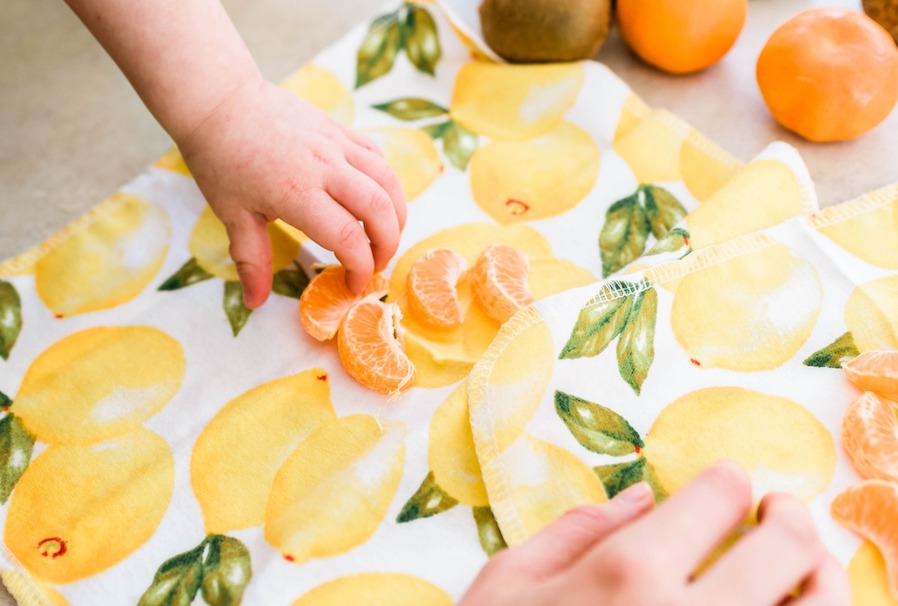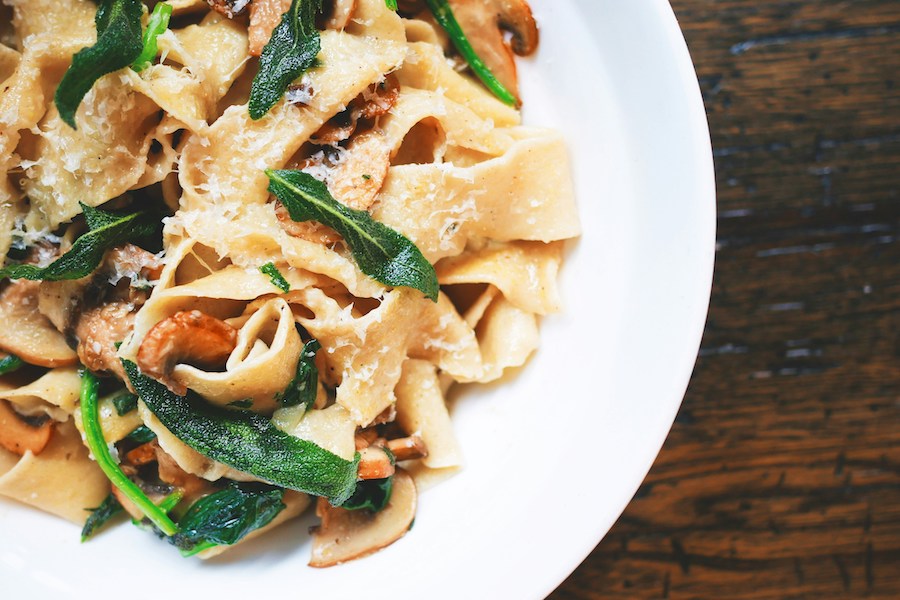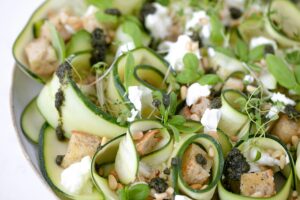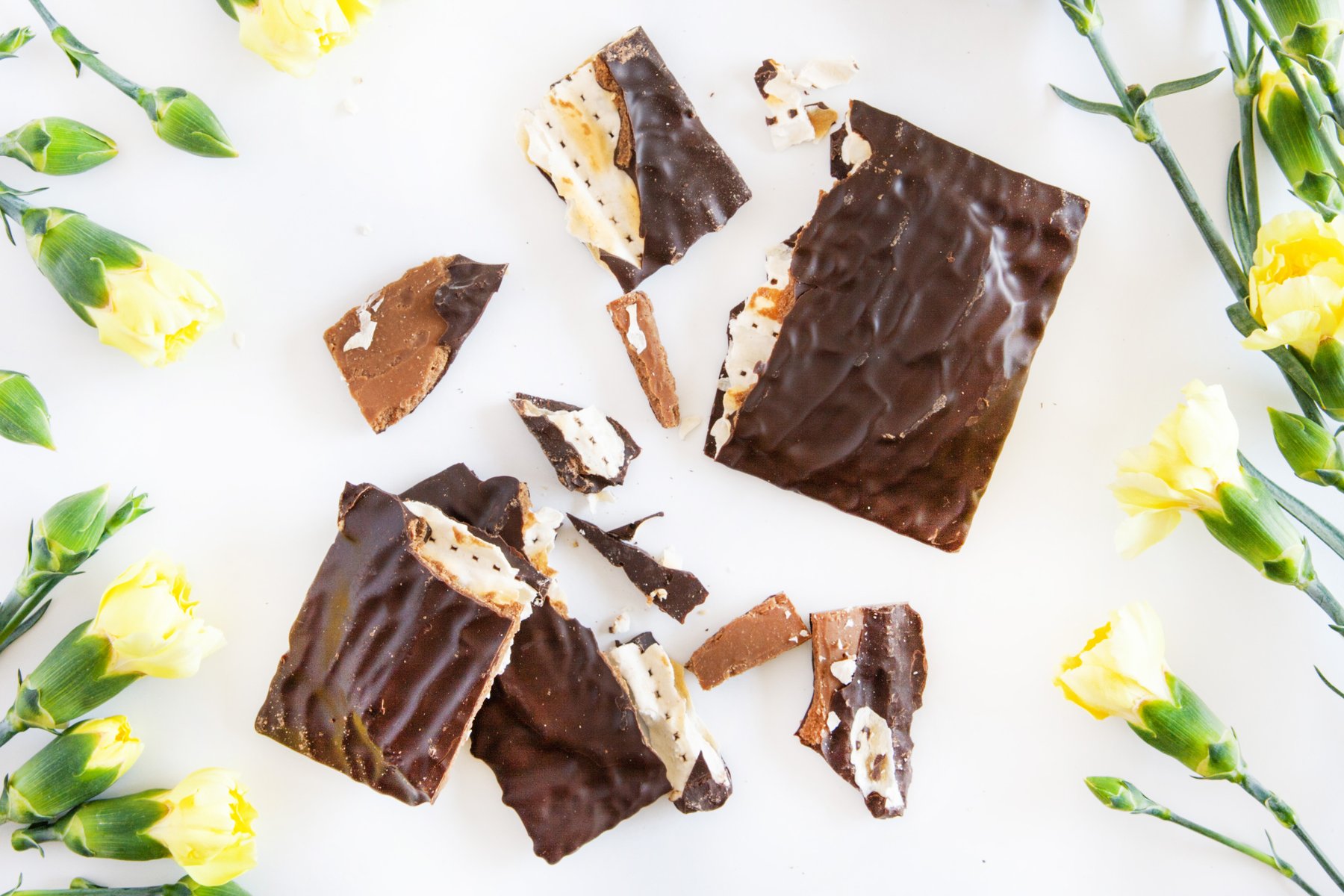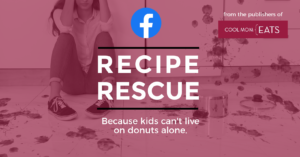With Earth Day coming up in April and spring cleaning season here, it’s a great time to reflect on ways we can create a more eco-friendly home and a more sustainable kitchen. If your family spends as much time as my family of five does thinking about, preparing, and eating food, creating a more sustainable kitchen with some simple changes is a terrific way to lessen our impact on the planet.
From the foods we buy to the ways we prepare them, and even how we clean up after ourselves, there are so many little things we can do to make a positive impact on the environment, especially when even more of us make these changes. I hope you’ll get some great ideas for a more sustainable, eco-friendly kitchen that won’t take too much money or effort.
Top photo: UNpaper Towels from Marley’s Monsters
This post updated for 2024
10 easy ways to create a more eco-friendly, sustainable kitchen
Editor’s Note: We recognize that not everyone has the budget for all of the eco-friendly kitchen products we’re sharing here, so maybe you choose one or two ideas. Or, do the math and consider the upfront investment on say, reusable plastic wrap alternatives and you might realize it ends up helping your budget over a just few short months.
Also, not every home is equipped to compost, and not every family is going to go full vegan. That’s okay! Whatever you’re able to do, it’s a good thing. No shaming here. Just progress where we can find it, a little at a time. -Liz
Some purchases here may generate a small commission at no expense to you, which helps support our team. So, thank you!
1. Switch to reusable paper towels
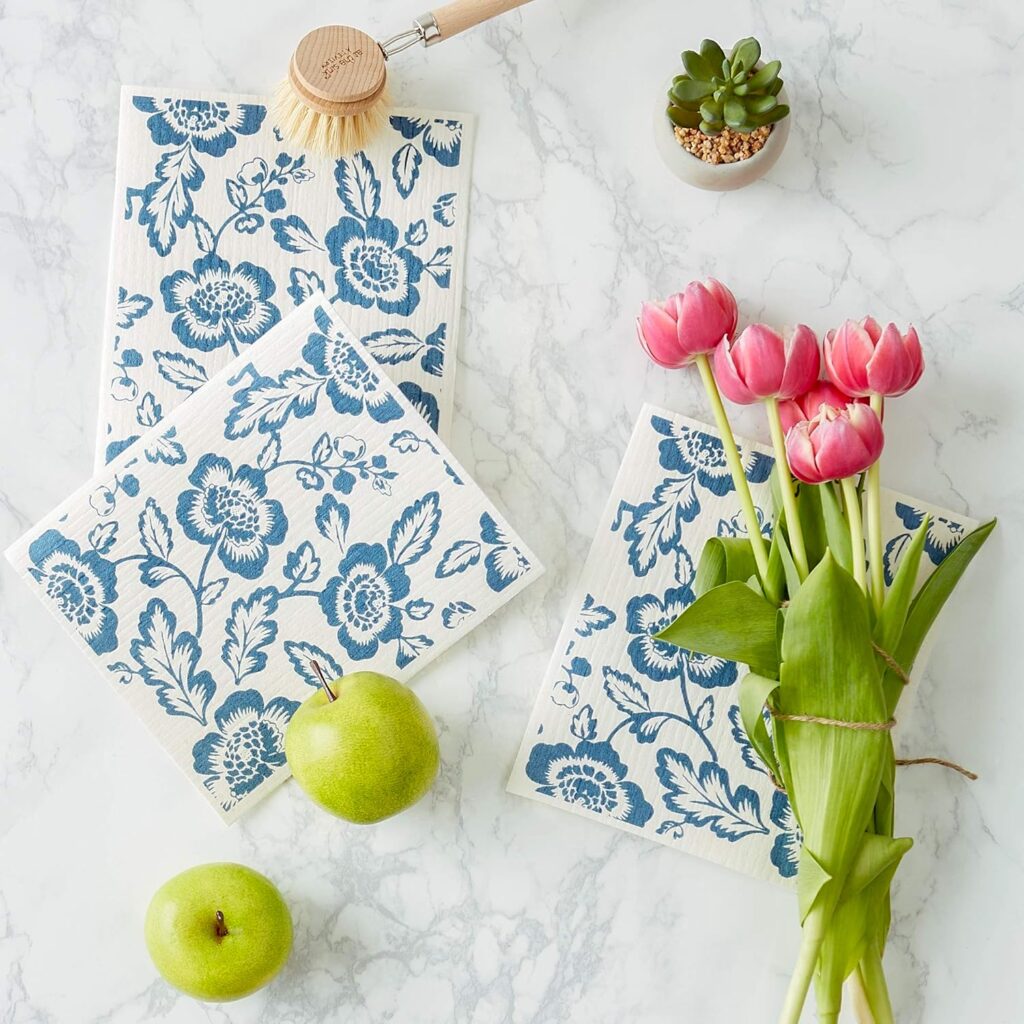
I’m starting here because switching to reusable paper towels turns out to be one of the absolute easiest things you can do — and anyone can do it. This post shares 5 excellent, eco-friendly paper towel alternatives that range from simple white to fun patterns like the gorgeous Swedish dishcloths above. Of course, regular kitchen towels work well for lots of spills too. Mostly it’s about getting in the habit with the kids and you’ll find that most of the time, you don’t even miss them.
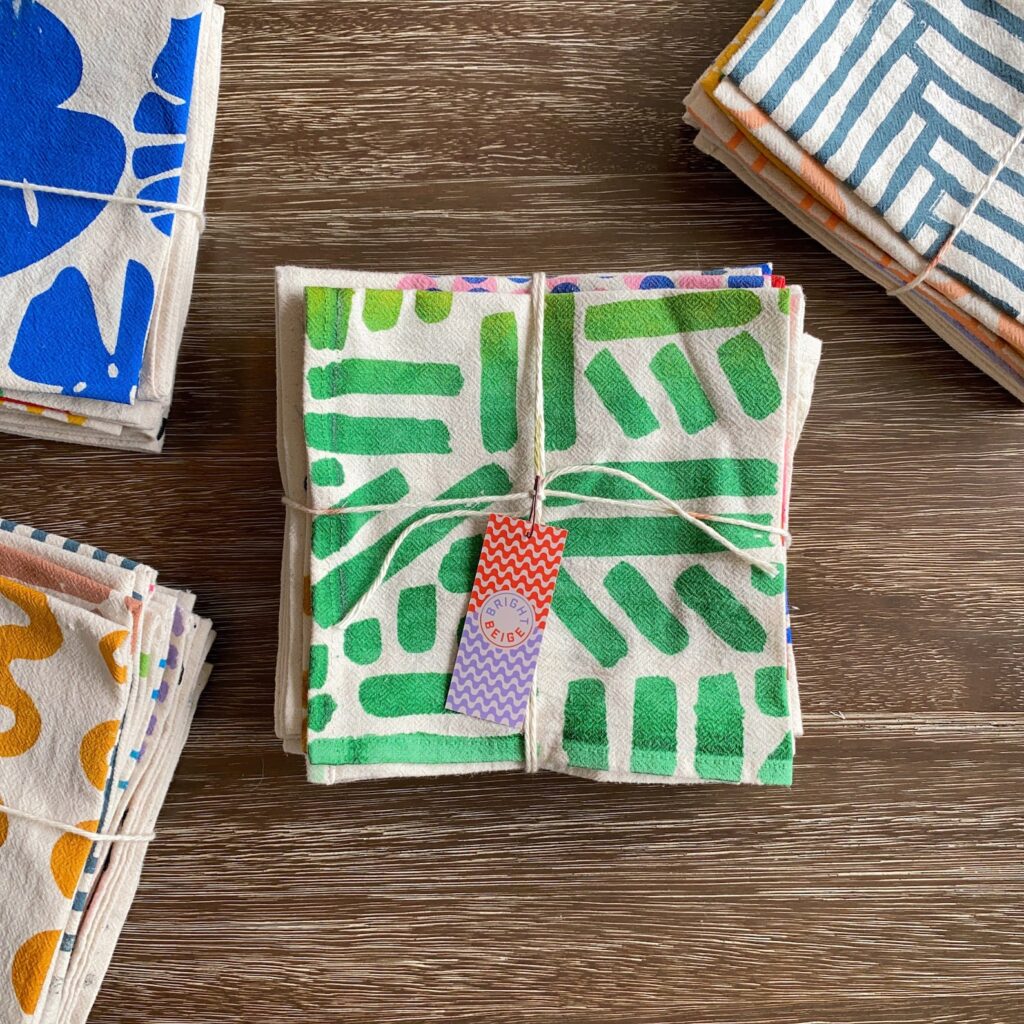
PS If the reusable towels are working for you, next try switching your paper napkins to pretty cloth napkins at the table and in the kids’ lunchboxes. These here from New York-based Bright Beige on Etsy are such an easy swap, they’re not fussy, and they’re made from flour cloth to last a long, long time.
2. Use cleaner, greener, more sustainable kitchen cleaners
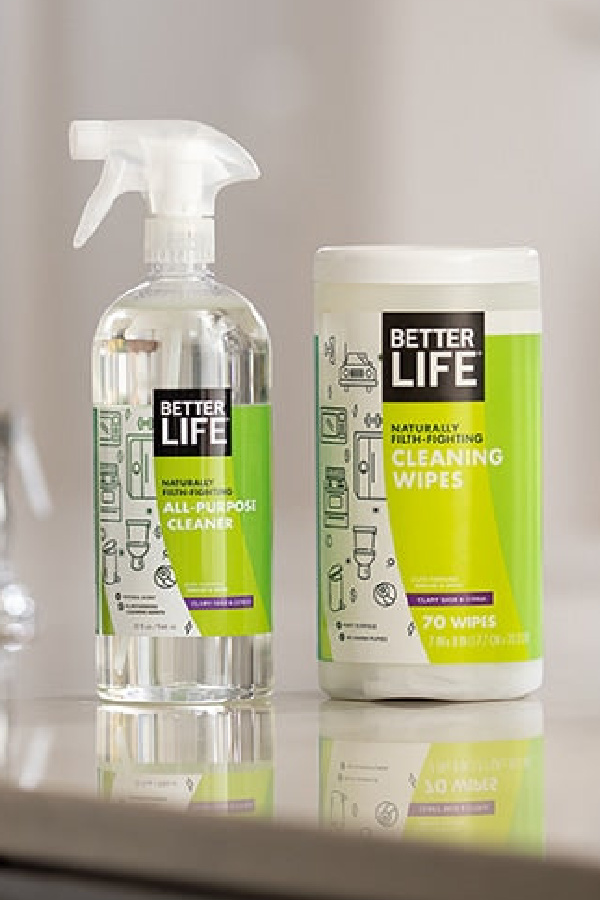
I spend so much time cleaning up the kitchen — dirty dishes, crumb-covered countertops, that sticky something on the floor — that using more reusable and natural products is a given. They’re less harsh on the environment and also less harsh on my lungs and skin when I use them. While you may already have your own favorite, we’ve all been big fans of Better Life natural cleansers since they first launched. In fact, they’re so effective, that when our editor Liz shared the floor cleaner with a cleaning service, they switched their stock!
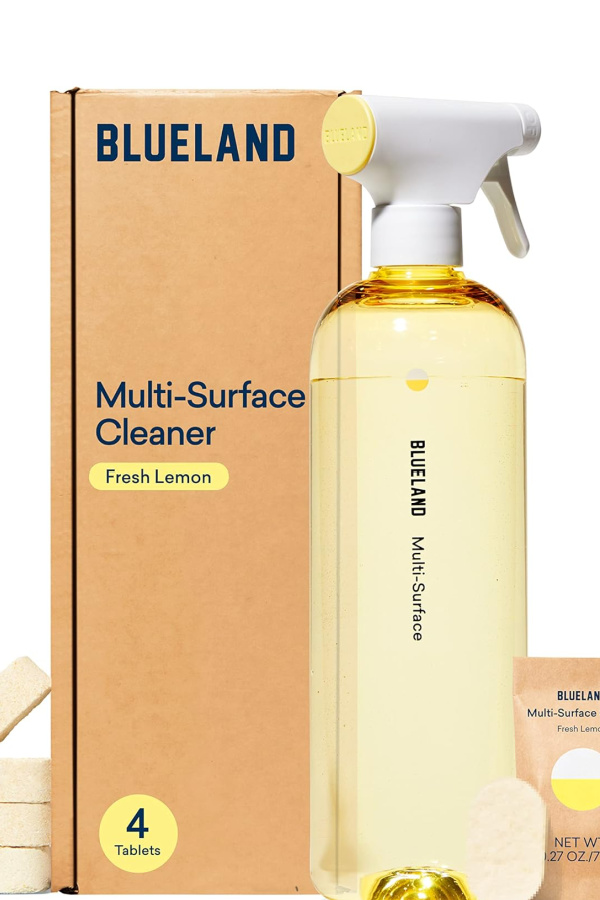
We also recommend Blueland Multi-Surface Cleanser, which takes eco-friendly to the next level by eliminating plastic in their tablets and their packaging — just buy the first bottle and refill forever. The plant and mineral-based ingredients are safe enough for the surfaces I use to prepare or serve food and if you have kids, you probably consider that too. And hey, Blueland is a mom-run company so yay for that!
3. Rethink your morning coffee routine

Though single-use products like K-cups and paper coffee filters are such small pieces of trash, the widespread use by millions of people adds up quickly in our landfills — and they cannot be recycled.. Instead, make the easy switch to either reusable refillable K-cup filters, reusable mesh coffee filters, or reconsider the method you use for brewing your morning coffee — like using a Bodum French press that needs no additional filter at all.
Related: 8 single-use products we can easily replace
4. Reduce school lunch waste
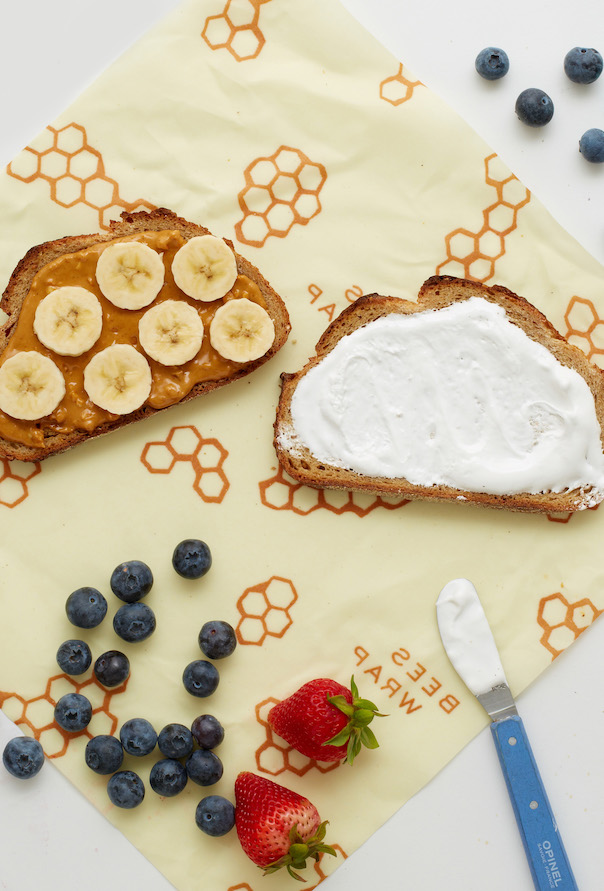
I still have two more months of school lunches to prepare (oy), which Is why I so appreciate items like Stasher reusable silicone bags that work so well to replace disposable baggies. You can also switch to one of these 3 plastic wrap alternatives — my favorite is Bee’s Wraps reusable wraps, which clean beautifully and last a good long time. But mom tip: Switch over to these options when your kids are old enough to remember to bring them home and not dump everything into the cafeteria trash!
5. Switch to safer, eco-friendly kitchen cookware
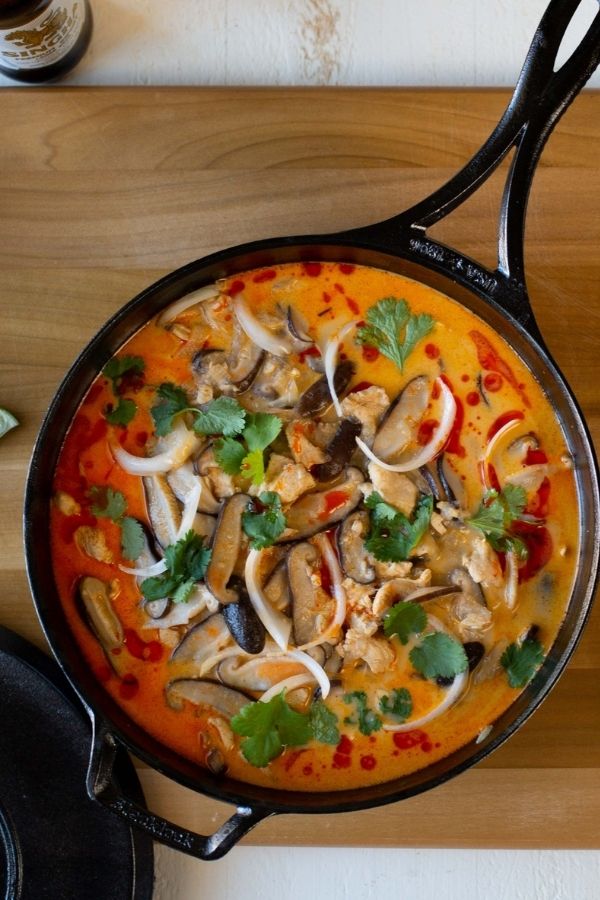
I switched to Lodge cast iron pans (shown here) years ago, after learning about chemicals called PFAS that are all over non-stick pots and pans, I’m even happier that I made the switch. If you can, changing over to either cast iron or stainless steel cookware (or a mixture of the two) can significantly reduce the amount of these “forever chemicals” that can come in contact with your food as you cook. And that’s a good thing.
6. Eat greener. Just a little.

If you’ve been trying to incorporate less meat into your diet, you are in luck! As a mom to a vegan, there has never been a better time to find plant-based products and recipes that we all love. And you don’t even have to forego ribs and burgers forever to have an impact: Try our tips for switching to one plant-based meal a week and gradually increase from there as it suits your family. You can even read Kate’s tips on whether it’s realistic to go vegan with kids, and try the tips that work.
We also recommend reading Plant Forward by Jazmin & Richard Blais, which isn’t vegan or vegetarian per se…just plant forward.
One other way to reduce the amount of energy needed to get your food from farm to table is to eat according to what’s seasonal for your area. That means grabbing lots of tomatoes in summer when they’re local, and lots of winter squashes later in the year. This state-by-state seasonal food guide is an awesome resource.
Related: Is it realistic to go vegan with kids? One mom’s real-life tips and tricks.
7. Use less energy where you can for a more sustainable kitchen
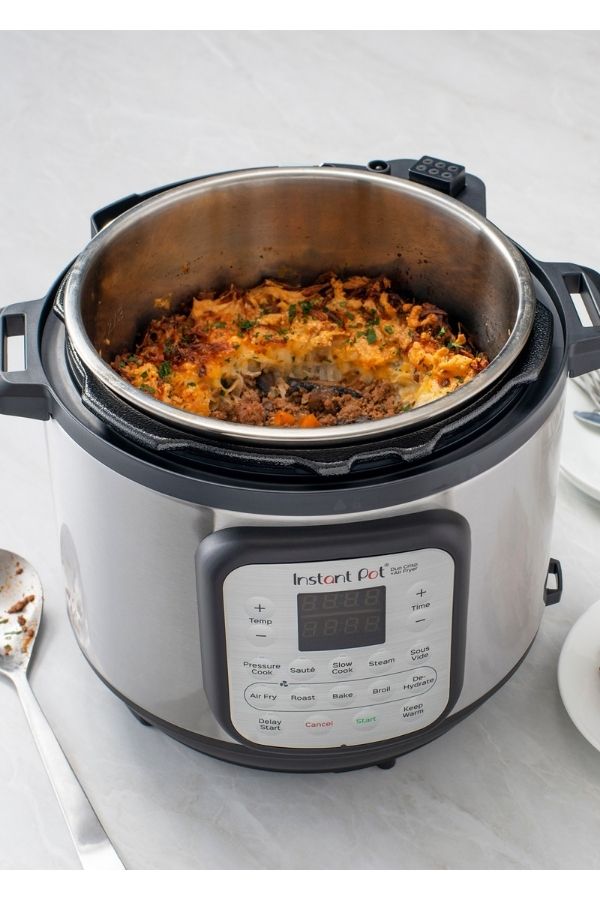
From an energy usage standpoint, I already try to use my smaller toaster oven to reheat leftovers versus turning on our large electric oven. But I also want to incorporate more slow cooker, Instant Pot, and air fryer recipes into our meal planning since these devices are less of a drain on our electric grid.
And another tip? Unplug items you leave on your countertop but only use infrequently. Even though they don’t use a lot of energy just chilling on your counter, they do use some and, chances are you don’t actually need that clock on your toaster oven anyway.
8. Use up the food you have and cut back on food waste
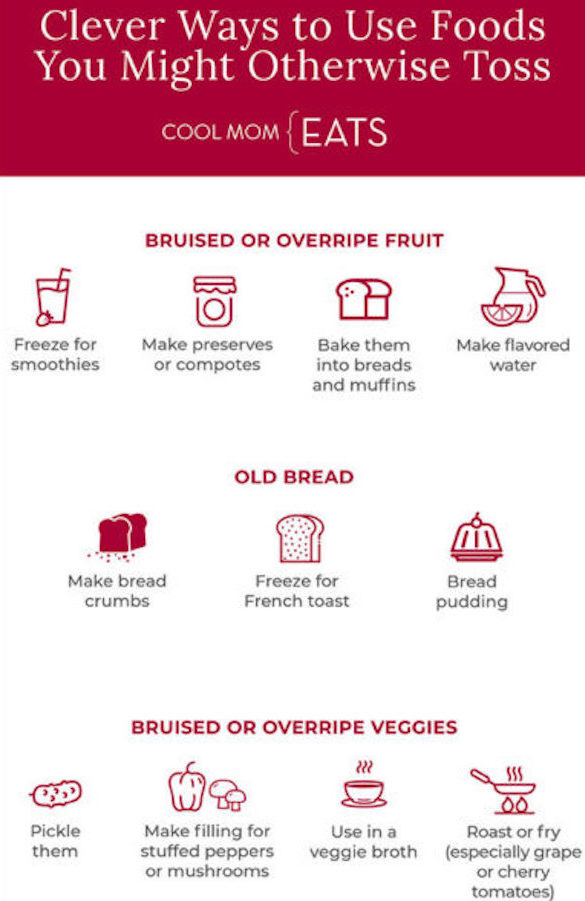
My mom used to limit our food waste by enforcing the “clean plate club”, something I am not inclined to repeat as a parent. Instead, I’m trying to focus on reducing our food waste by learning how to use up foods that may be a little past their prime. Another trick I’ve found is to do a little bit of meal planning each week with the help of an app that lets me search by ingredient(s) so I can use up what I have in the house before it spoils.
Also see this terrific post on 11 smart ways to use expired baking soda — it’s a great reminder that not everything “old” is bad in a sustainable kitchen.
9. Start a garden
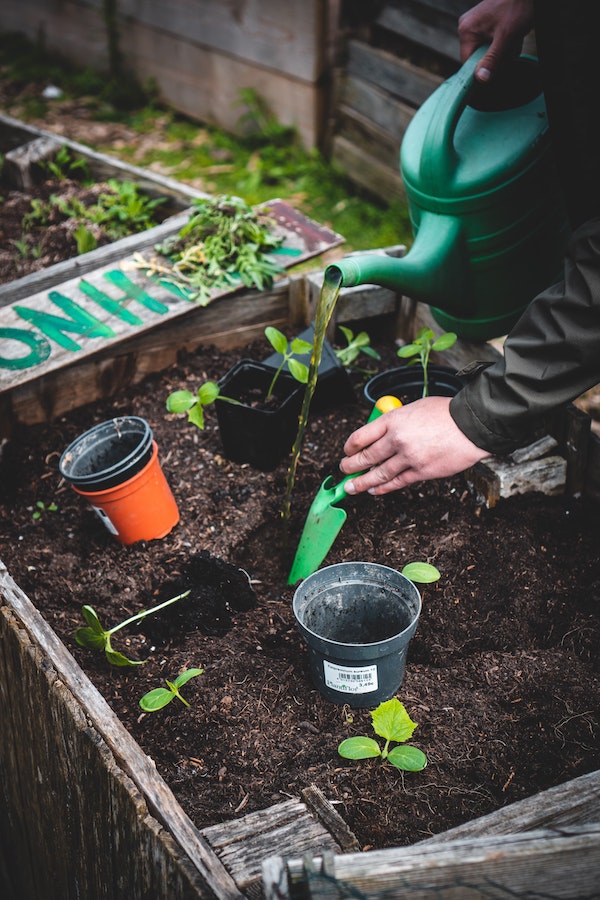
We started a small backyard garden a few years ago, and it’s been so rewarding to pick fresh tomatoes, cucumbers, peppers, and herbs all summer long. For those who don’t have space for a garden plot, try growing herbs or plants indoors or in containers on your front steps. Not only is gardening a great way to feed your family, but it also teaches kids valuable lessons about farming, the seasonality of foods, and how great just-picked cherry tomatoes can taste. Photo by Jonathan Kemper on Unsplash
Related: We Grew It, Let’s Eat It is a great intro to gardening for kids
10. Try composting your food scraps
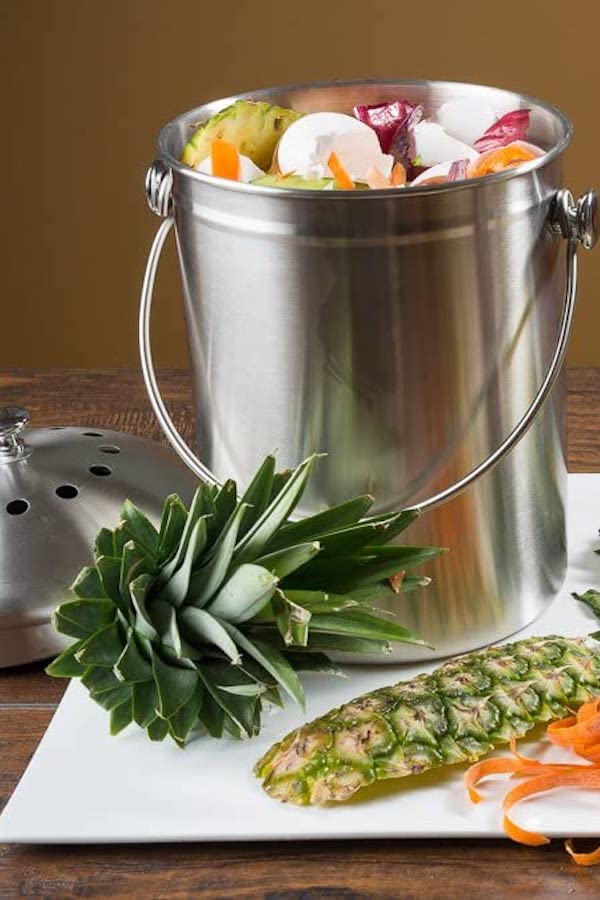
Letting your food scraps become nutrient-rich compost is a great way to reduce the waste we send to the landfill—and it is surprisingly easy to do! Mostly it’s about setting up a system and getting in the habit.
I keep a little stainless steel compost bin next to my kitchen sink into which we throw our vegetable and fruit food scraps before transferring them all to a larger outdoor composting bin we keep in the yard. I also love Anne’s easiest composting practice that the kids may love doing on their own. If you’re not using compost in your own garden, be sure to check for compost pick-up companies in your town that will take away your scraps and provide you with bags of rich compost in return. Talk about a win-win!
Finally…support legislation around sustainability, because we can do a lot more if we all do it together
While I think we can all make changes in our kitchen to make it more eco-friendly and sustainable, I believe more pressure has to be put on manufacturers to reduce plastic use and unnecessary packaging. Especially because there are so many technological advances now that make it easier. I’ve been keeping a close eye on Maine’s Extended Producer Responsibility Program for Packaging — in 2021 it became the first regulation in the country that charges manufacturers based on the amount and the recyclability of packaging associated with their products. In other words, it incentivizes manufacturers to produce more eco-friendly products that can be easily recycled.
Keep an eye on your state and city; maybe it’s something you can help support on the local level where you are. And what a great lesson for the kids in speaking truth to power!

